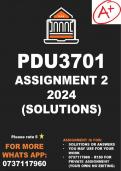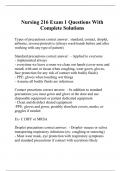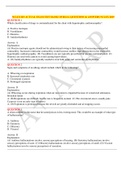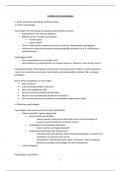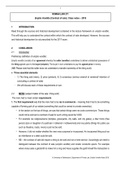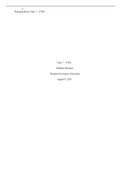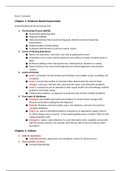Other
PDU3701 Assignment 2 2024 (solutions)
- Course
- PDU3701 (PDU3701)
- Institution
- University Of South Africa (Unisa)
PDU3701 Assignment 2 2024 (solutions) 9.5.2 Assignment 02: Paragraph type questions: Mandatory assignment Question 1 1.1 African philosophy is concerned with attempting to reassert distinctively African ways of thinking and of relating to the world. In the light of this, what issues need to ...
[Show more]
